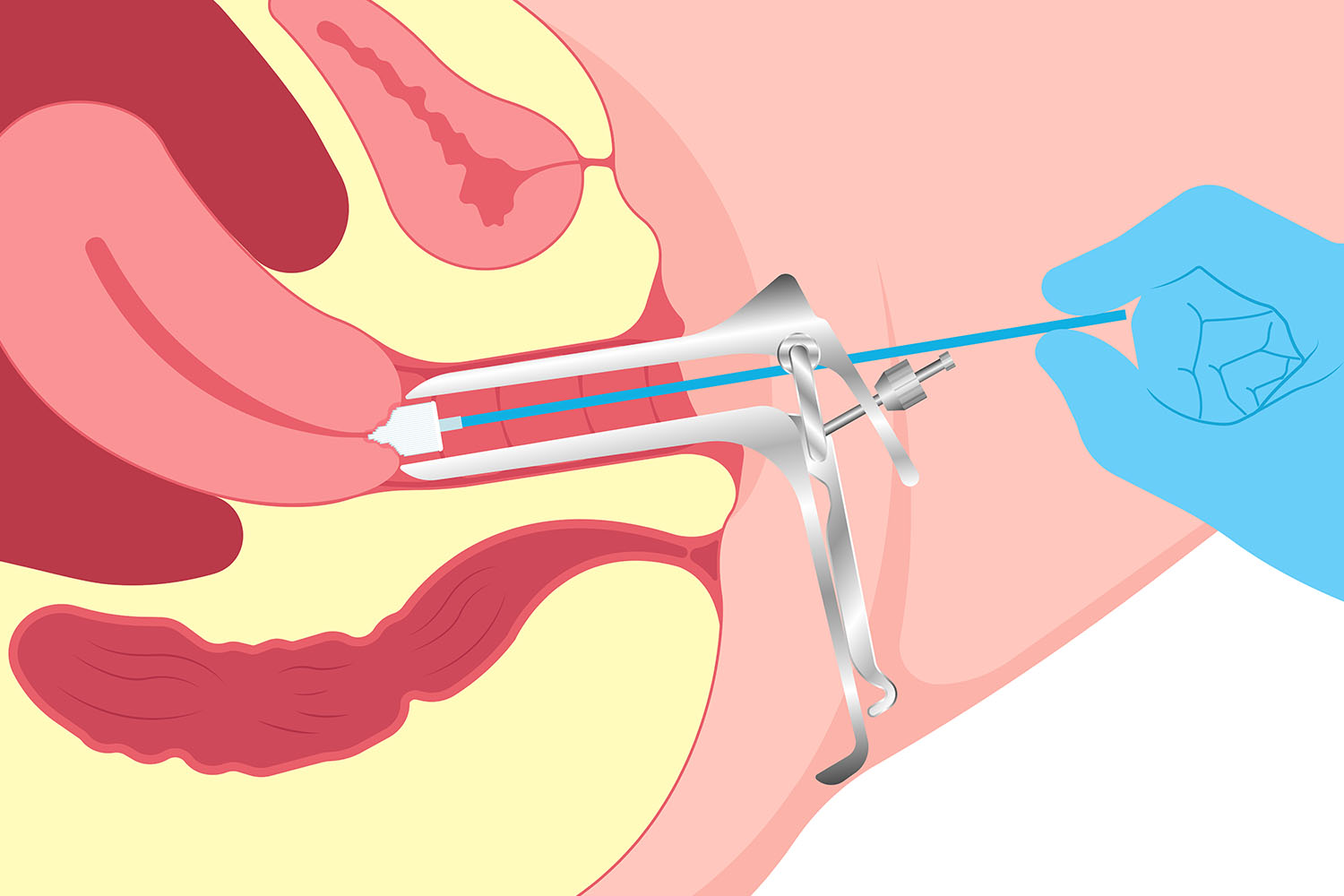Overview
What is a Pap smear? It’s a question that often arises among women, yet its significance in preventive healthcare cannot be overstated. A Pap smear, also known as a Pap test or cervical cytology, is a simple yet vital screening procedure aimed at detecting abnormalities in the cervix, particularly those that may indicate the presence of cervical cancer or precancerous changes.

Cervical cancer ranks among the most prevalent cancers affecting women globally, with a significant portion of cases attributed to persistent infection with high-risk strains of the human papillomavirus (HPV). While HPV vaccination has proven effective in preventing HPV infection, regular Pap smears remain essential for early detection and intervention.
During a Pap smear, a healthcare provider gently collects cells from the cervix using a small brush or spatula. These cells are then transferred onto a glass slide or placed in a liquid medium for laboratory analysis. The collected cells are examined under a microscope to identify any abnormalities in their morphology or structure.
Research indicates that Pap smears have played a pivotal role in reducing the incidence of cervical cancer and related mortality rates. By detecting precancerous changes or early-stage cancerous lesions, Pap smears enable timely intervention, often through minimally invasive procedures such as loop electrosurgical excision procedure (LEEP) or cone biopsy, which can effectively remove abnormal tissue and prevent the progression to invasive cancer.
The frequency of Pap smear screening recommendations may vary depending on factors such as age, personal medical history, and risk factors for cervical cancer. Generally, guidelines suggest starting Pap smear screening at age 21 and repeating the test every three to five years for individuals with normal results. For those at higher risk or with abnormal findings, more frequent screening or additional diagnostic tests may be warranted.
Importantly, Pap smears not only aid in the detection of cervical cancer but also serve as a platform for HPV testing, especially in conjunction with liquid-based cytology techniques. HPV testing can identify the presence of high-risk HPV strains known to be strongly associated with cervical cancer development, guiding further management decisions and follow-up strategies.
In recent years, advancements in screening technologies, including the introduction of HPV DNA testing and molecular biomarkers, have enhanced the accuracy and efficiency of cervical cancer screening programs. These innovations offer greater sensitivity and specificity in identifying individuals at risk, thereby facilitating targeted interventions and reducing unnecessary follow-up procedures.
In conclusion, a Pap smear is more than just a routine medical test—it’s a cornerstone of preventive healthcare for women. By undergoing regular Pap smear screenings as recommended by healthcare professionals, individuals can take proactive steps towards safeguarding their reproductive health and reducing the burden of cervical cancer. Emphasizing the importance of Pap smears in public health initiatives and promoting awareness about cervical cancer prevention can empower women to prioritize their well-being and advocate for accessible screening services.



